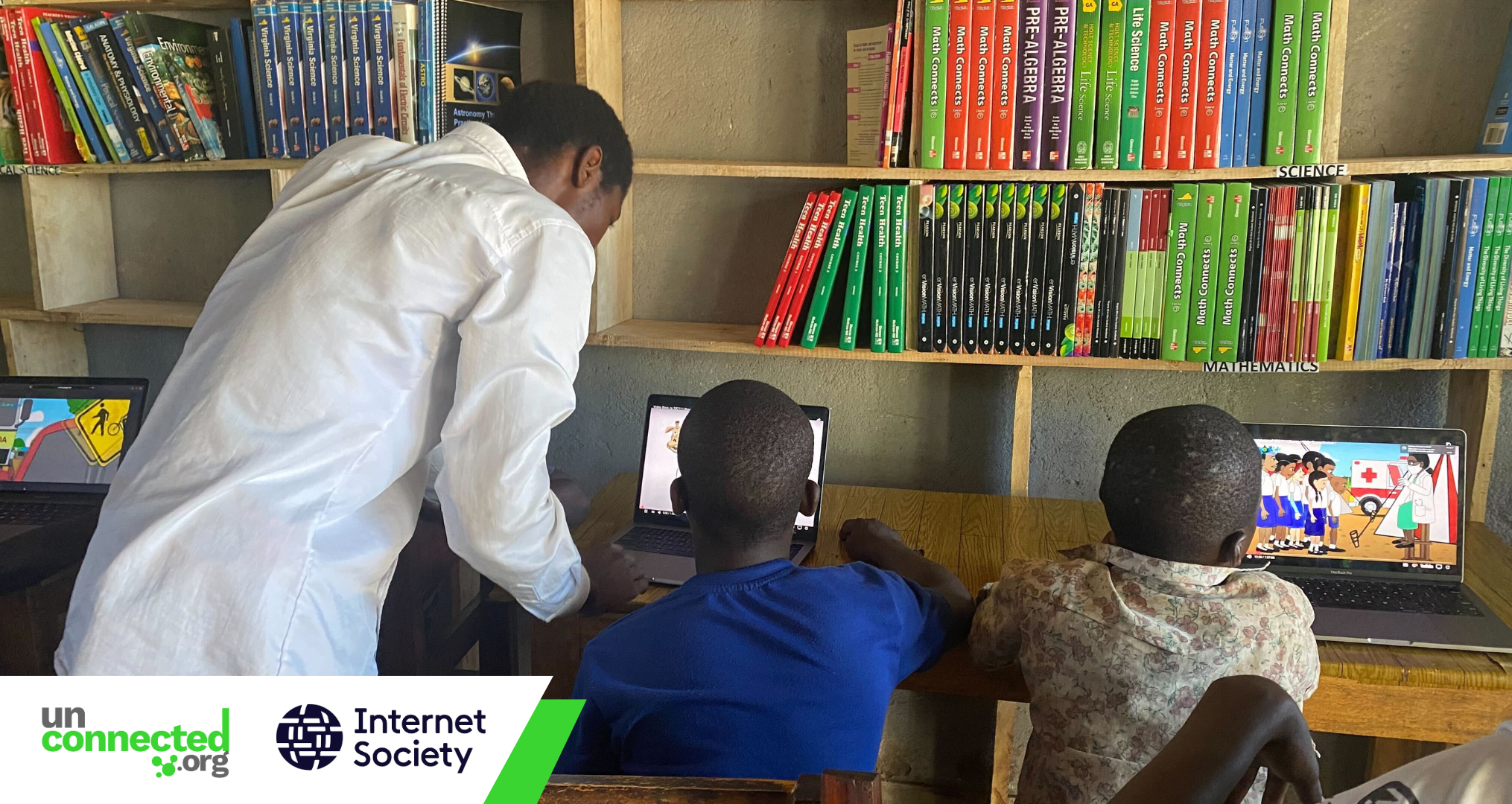A Network of Dreams: How Sustainable Internet is Transforming Rural Malawi
In many parts of the world, reliable internet remains a distant luxury. In rural Malawi, getting online has historically been an uphill battle, with mobile data being expensive and slow, and most schools and homes lacking any connectivity at all. But a remarkable transformation is underway in Northern Malawi, driven by a sustainable network that connects not just schools, but entire communities.
This is the story of how unconnected.org, with support from the Internet Society Foundation’s BOLT Grant Program, is helping Malawians access and stay online.
Two Goals, One Powerful Model: Access and Ownership
From the outset, the project in Northern Malawi pursued a dual mission: to provide meaningful internet access to students and educators in rural schools, and to create a self-sustaining business model run by local entrepreneurs and ISPs. The core of this model lies with the schools themselves, which serve as internet hubs equipped with routers, servers, and satellite connectivity, offering free access to students and teachers.
But the connectivity doesn't stop at the school gates. A clever mesh Wi-Fi network extends the internet signal to the surrounding community, where residents can purchase prepaid access at a fraction of the cost of traditional mobile data. For instance, Fast Networks, a local ISP in Karonga, introduced prepaid vouchers for about $0.20 each, unlocking six hours of high-speed, uncapped internet. Crucially, the revenue from these vouchers stays within the community, supporting the network, schools, and local entrepreneurs.
Tangible Impact and Empowered Lives
The results of this sustainable model are profound:
63 communities and over 70 schools are now connected.
600,000 people live within reach of affordable internet.
Over 68,000 students attend connected schools.
Internet speeds have dramatically improved, jumping from less than 1 Mbps to
up to 50 Mbps.
The cost of access has plummeted by
more than 90%.
Inside classrooms, teachers now leverage online tools, lesson plans, and educational videos, fostering greater student engagement. Students, like Ruth Mwenelupembe, who dreams of becoming a journalist, can access information far beyond their textbooks, recognising the power of technology for education.
Overcoming Hurdles, Building Confidence
The project also addressed challenges such as device scarcity and digital confidence. The team implemented IT fundamentals training, digital safety sessions, and content filtering tools, particularly empowering female educators to use digital tools safely and confidently. As the unconnected.org team noted, "Young girls need to see female teachers using the Internet confidently... That’s when we’ll see real transformation".
The Blueprint for Sustainable Connectivity
This project is a testament to continuity, proving that connectivity can evolve into a self-sustaining service and a locally run enterprise. With local ISPs maintaining networks, voucher sales covering ongoing costs, and schools no longer relying on external funding, communities have gained not just access but genuine ownership of their digital future. The model continues to evolve, with future phases exploring 4G last-mile delivery to extend reach to homes and businesses.
Ultimately, when students can access global knowledge, they dream bigger. When teachers are supported, they teach with more confidence. And when a community owns its internet, it truly owns its future. In Northern Malawi, connectivity isn't an end—it's a promising beginning.
With Support from the Internet Society Foundation
This transformative work in Malawi has been made possible with crucial support from the
Internet Society Foundation’s BOLT Grant Program. Their commitment to fostering internet access and empowering communities has been instrumental in helping the Unconnected Foundation not only bring Malawians online but ensure they stay connected through a truly sustainable model.




